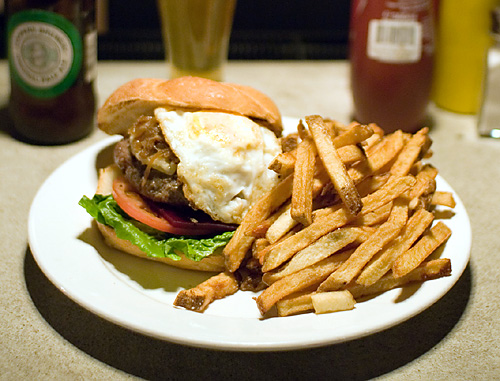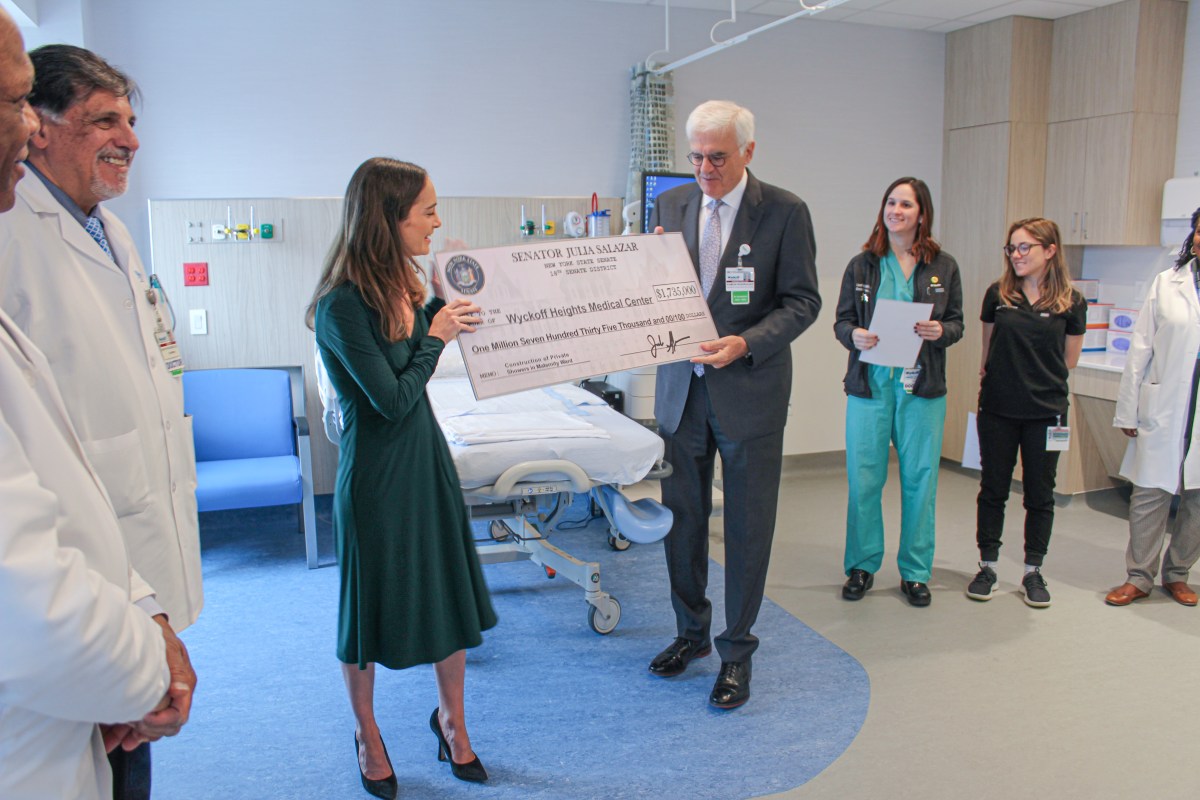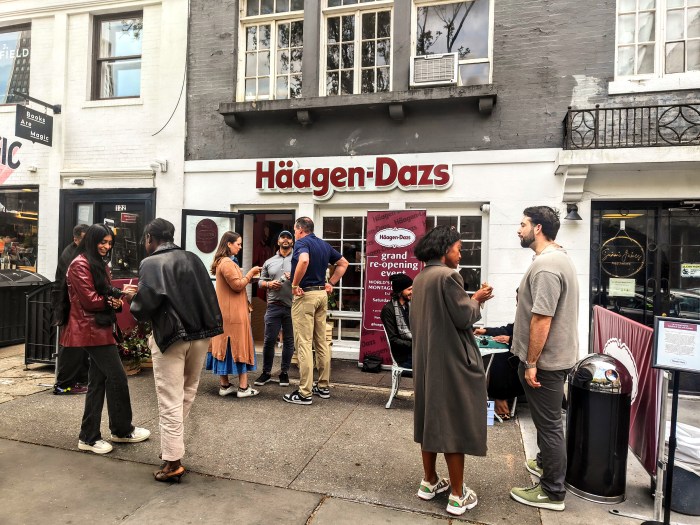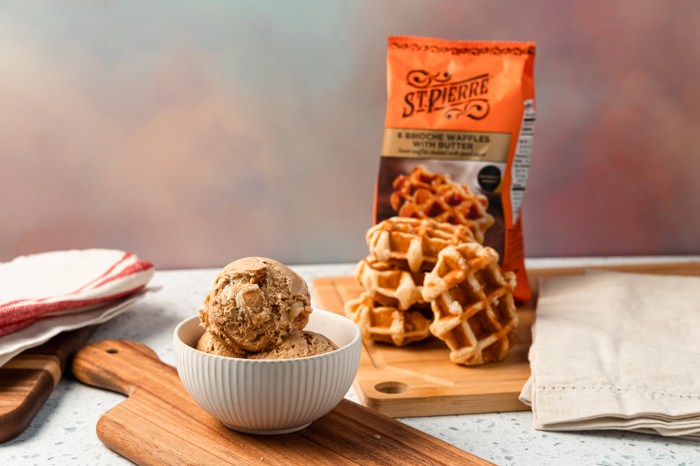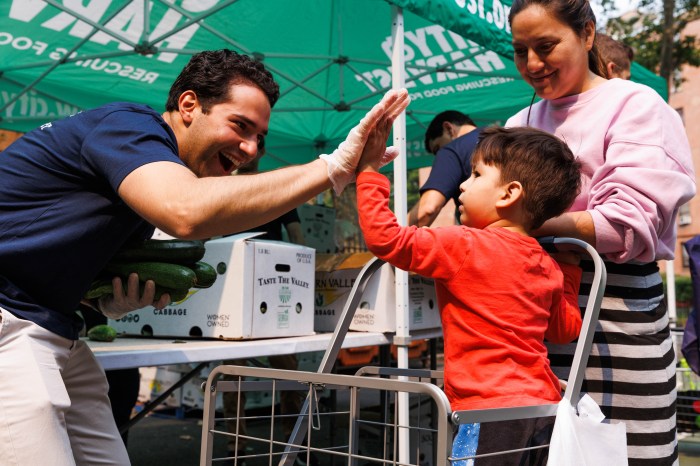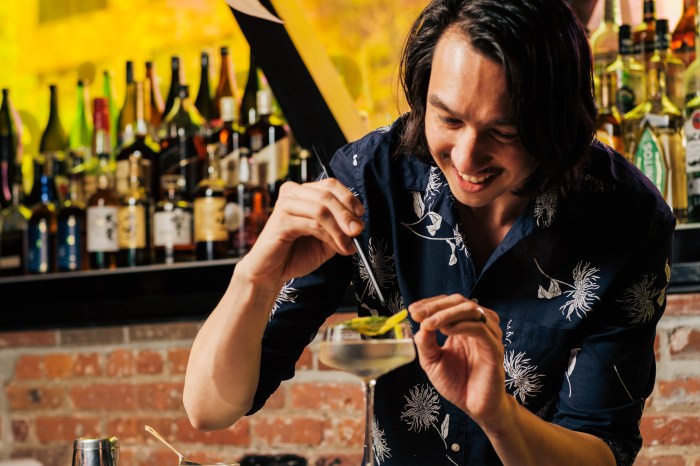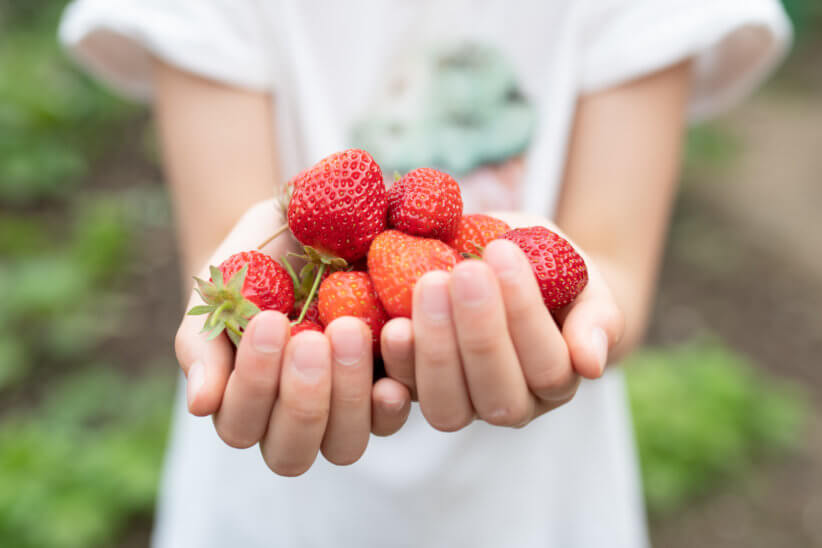How do you like your burger: rare, well or covered with beets, pineapple and a fried egg?
If you like the beet concoction, your ship has just come in — all the way from Australia.
Long overlooked in the American dining circuit, Australian food is experiencing a renaissance — and Brooklyn is increasingly home to the wizards of Oz cuisine.
“Australian food is where Californian cuisine was 20 years ago,” said Charlie Statelman, the chef-owner of the Wombat, a Williamsburg bar-restaurant that opened in October.
It didn’t happen overnight, however.
Until the 1980s, Australian food largely reflected English and Irish culinary traditions. “Bush food,” as the country’s historic game- and plant-driven Aboriginal cuisine is known, steadily gained recognition among Australia’s non-indigenous denizens, and native ingredients made their gradual entrance into the modern palate.
In the 1980s, a series of notable cultural events — and some not so cultural, such as the 1986 film, “Crocodile Dundee” — secured the country’s place on the international radar.
Given the popularity of the film, it should be no surprise that a chain restaurant was the first to capitalize: Outback Steakhouse made its debut in 1988.
Yet the brand, according to partner Robert Jarvis, prides itself on “serious food and concentrated service” that distinguishes it from its chain brethren.
Certainly, the menu — with items like Jackeroo Chops and Kookaburra Wings — makes Outback sound like it’s just a Pizzeria Uno or a Chuck E. Cheese with an Australian accent.
But Jarvis says to look deeper. The company makes its own butter and its signature dish, the Bloomin’ Onion, is cut, breaded and fried in-house daily.
Brooklynites certainly aren’t snobs; the Dyker Heights Outback, which opened on 86th Street near 15th Avenue in 2001, is one of the top five locations in the entire company, Jarvis said.
Beyond the chain
The new breed of Australian restaurants shirks the kitschy jargon in favor of authenticity.
D.U.B. Pies — short for Down Under Bakery — arrived on the Brooklyn scene in 2003 when owner Gareth Hughes opened his flagship shop, Let Them Eat Pie, in Red Hook.
The Australian and New Zealander meat pies range from the classic Steak Mince, a flavorful pocket of ground beef in onion gravy, to the garlicky Spinach and Ricotta. Organic smoothies and fair trade coffee are a natural lure for Red Hook’s young, socially conscious residents, and the price — less than $5 a pie — suits their equally youthful budgets.
Sheep Station, which opened in September, uses imported Australian and New Zealander meats and a range of unfamiliar bush spices to create iconic Australian staples.
“We wanted to build an easy, fun and accessible place,” says owner Martine Lafond who, along with Aussie partner Jason Crew, has closed the gap between dining destination and watering hole.
A front bar outfitted in corrugated steel and reclaimed wood attracts a vibrant crowd of locals who swill Australian beer, wine and cocktails beneath a worn tin ceiling, while others prefer the cozy, fire-lit back room (no matter where they sit, customers love the popular Bee Sting, made from honey vodka, Kahlua and vanilla vodka, then finished with chocolate powder and served in a glass rimmed with Australian honey and toasted coconut).
Those who come to eat, not drink, can look forward to remarkably authentic fare like the Shearer’s Burger, the aforementioned mound of meat, beets, pineapple and a fried egg; or a fragrant helping of moist New Zealand lamb chops served with a knob of peas and shredded mint.
Creeping toward Bushwick from the saturated Williamsburg dining scene, Wombat also set up shop beyond an established thoroughfare. Statelman’s latest effort — he is coming off of a seven-year stretch at Smith Street’s Patois — is an “Aussie-style” menu that highlights Australian cheese, wine and spices (he gets the herbs from importer Vic Cherikoff, an authority on Australian native flavors).
Ingredients like lemon myrtle, bush tomatoes and wattleseed elevate even Wombat’s most ostensibly familiar fare. The chicken panini, for example, is topped with bush tomato mayonnaise and Australian cheddar, imparting a distinct Australian slant on the common sandwich. Statelman plays with the evolution of the country’s culinary hallmarks, as when he brings in game meat for his Soy-Cured Venison Medallions served with a Sriracha buckwheat fritter, or reinterprets the iconic pie “floater” — his uses a flaky poached chicken Wellington in place of the traditional meat pie.
The growing presence of Australian cuisine might well represent a larger shift in New York dining trends — one that reflects a departure from the precious, elegantly crafted plates of the last decade in favor of a hearty, deeply satisfying meal. For Brooklyn diners, that’s a meaty prospect to be sure.
Say what?
If you want to speak like a local and navigate the latest wave of Australian menus, take this crash course in Aussie food lingo:
Adam’s ale: Water.
Bottle-o: A liquor store, also referred to as a bottle shop.
Bum-nuts: Eggs.
Bush tomato: Also called desert raisins, these small native berries are often dried and ground to impart a tangy tomato flavor to a range of foods.
Floater: An Australian meat pie served in pea soup and drizzled with tomato sauce. Commonly thought of as a “drinking food.”
Lemon myrtle: A common bush food prized for its lemon-flavored leaves, they impart a citrus flavor to milk-based dishes that might curdle with the use of actual lemons.
Milk bar: The Australian equivalent of a bodega.
Plonk: Cheap wine. Rumored to be descended from a heinous mispronunciation of the word “blanc.”
Pot, schooner and pint: Three sizes of draft beer (10 oz., 15 oz., and 20 oz. respectively).
Tinny: A can of beer.
Tucker: General term for food, though more directly references “bush tucker,” another name for Australian native food.
Wattleseed: A variety of the Acacia seed with qualities akin to coffee. Wattleseeds are often roasted and ground for use in a variety of foods.
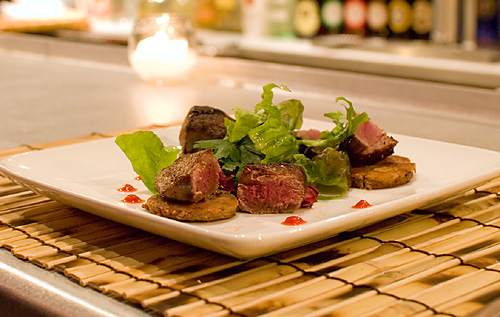
Outback Steakhouse (1475 86th St. at Bay 8th Street in Bensonhurst) accepts American Express, Diner’s Club, Discover, MasterCard and Visa. Entrees: $11.99–$30.99. The restaurant serves dinner daily and lunch on weekends. Subway: B, M at 18th Avenue. For information, call (718) 837-7200.
Sheep Station (149 Fourth Ave. at Douglass Street in Park Slope) accepts cash only. Entrees: $10–$14. The restaurant serves dinner daily. Subway: M, R at Union Street. For information, call (718) 857-4337.
The Wombat (615 Grand St. at Lorimer Street in Williamsburg) accepts cash only. Entrees: $6.50–$24 (for prix fixe dinner). The restaurant serves brunch, lunch and dinner daily. Subway: L at Graham Avenue. For information, call (718) 218-7077.
D.U.B. Pies (193 Columbia St. at Sackett Street in Red Hook) accepts American Express, Diner’s Club, MasterCard and Visa. Entrees: $3–$7.50. The restaurant serves lunch and dinner daily. Subway: F, G at Carroll Street. For information, call (646) 202-9412.


